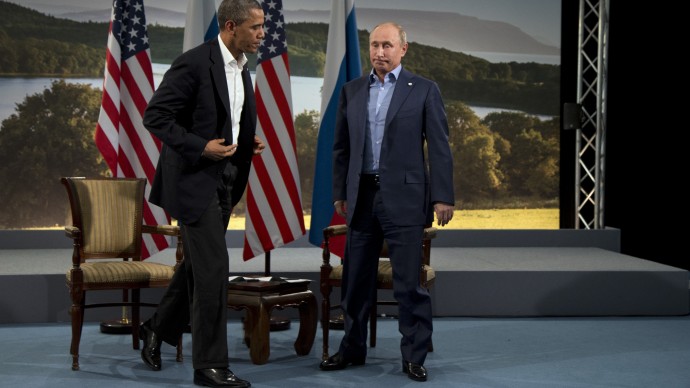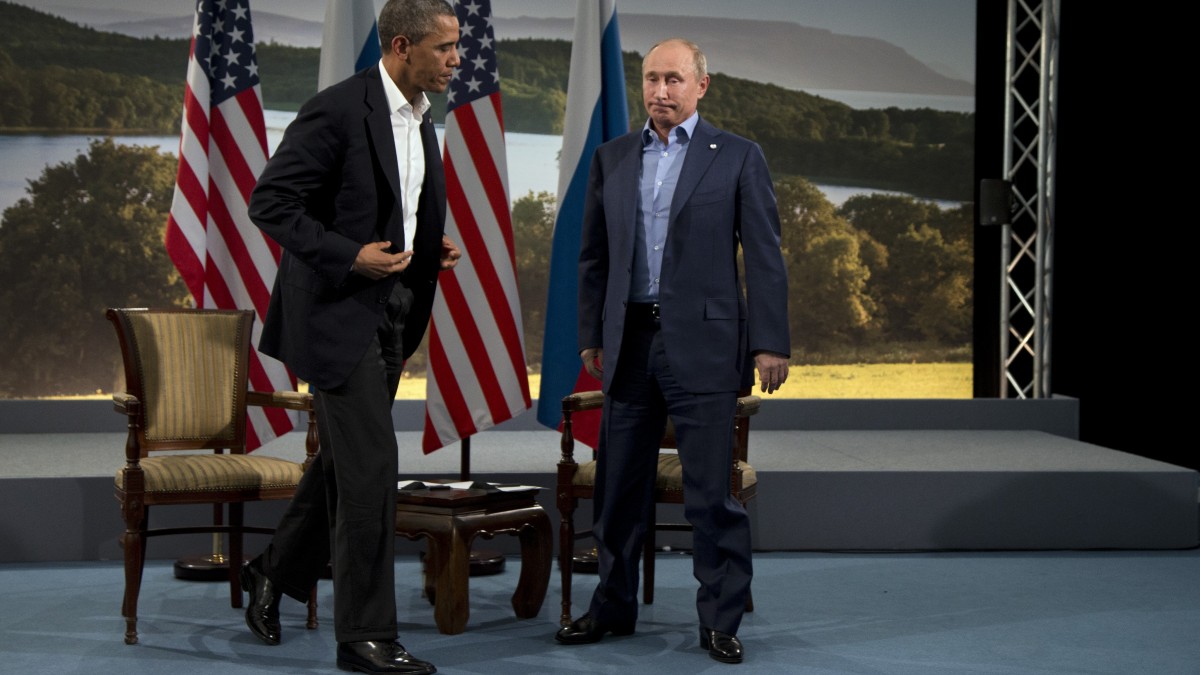
As the crisis in Ukraine continues, some U.S. legislators have pushed for exporting the nation’s natural gas to be used as a “weapon” or leverage point to weaken Russia and President Vladimir Putin’s influence on the region.
Russian President Vladimir Putin at the G20 leaders summit. Yet others charge that this is an idea “untethered from reality.”
Ukraine is heavily dependent for natural gas on Russia’s state-owned Gazprom, though it has cut off that supply at times, most recently in 2009, while the fracking boom has made the U.S. the biggest natural gas producer.
Some on The Hill are saying that the U.S. should send off all this fracked gas via liquified natural gas (LNG) exports to loosen Russia’s grip, and that the Department of Energy should expedite approval of pending permits for LNG exports.
House Speaker John Boehner (R-Ohio), for example, said that exporting more natural gas could “strengthen our economy here and our security here and abroad,” and that the “the only thing standing in the way are the bureaucrats in the Department of Energy.”
“Expediting approval of natural gas exports is one clear step the U.S. can take to stand by our allies and stand up to Russian aggression, while creating American jobs at the same time,” Boehner also said.
Democratic Colorado Sen. Mark Udall added, “The situation in Ukraine shows the urgent need for Colorado and the nation to export more natural gas,” and urged quick approval of pending liquefied natural gas terminals, introducing legislation on Wednesday to make that happen.
Republican Congressman Ted Poe (R-Texas) introduced similar legislation on Wednesday as well.
But exporting LNG is expensive, and, as Politico reported:
Even if the pressure from Congress prods the Energy Department to move faster, the practical effect anytime soon would be nil. The U.S. has no currently operating plants that could ship liquefied natural gas overseas, and probably won’t until late 2015 at the earliest. And Ukraine has no plants that could convert the liquid fuel back into gas for use in furnaces or power plants.
Energy Secretary Ernest Moniz stressed this point, telling Politico. “The fact is [that pouring U.S. gas into Europe] is just physically not going to happen.”
On All In on Wednesday, Chris Hayes and his guests radio host Sam Seder and Dan Dicker, CEO of wealth management group MercBloc, take apart this push for LNG exports as means to neutralize Russian power over Ukraine as well. Aside from climate impacts from increased fracking, it is unrealistic, they say, to think that pushing for more LNG exports would have any effect on the current crisis at all:
This article first appeared on Common Dreams.


